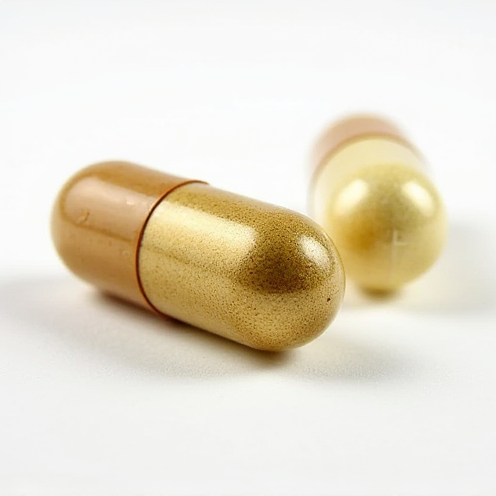Crolimus 1mg Capsule
Product Info
| Prescription required | Yes |
| Marketer | Aubade Healthcare Pvt Ltd |
| Active Ingredient | Tacrolimus (1mg) |
| Storage | Store below 30°C |
| Chemical Class | Macrolide Lactams |
| Habit Forming | No |
| Therapeutic Class | ANTI NEOPLASTICS |
| Action Class | Immunosuppressant- Calcineurin inhibitors |
| User Rating | 4.9 |
| User Reviews | 686 |
FAQ














Crolimus 1mg Capsule Reviews
The amount of Crolimus 1mg you take and how often you take it depends on the type of transplant you have, your body weight, and what other medicines you are taking. Follow your doctor’s instructions carefully. You should take it on an empty stomach, at least 1 hour before or 2 hours after a meal. Take this medicine regularly to get the maximum benefit and keep taking it, even if you feel well. If you stop taking it, you may increase the chances of rejecting your transplanted organ.
Crolimus 1mg has many potential side effects. It can cause or worsen diabetes and kidney problems. These need urgent medical attention. Other common side effects include tremor, infections, high blood pressure, headache, and insomnia. If the side effects do not go away or get worse, tell your doctor. Crolimus 1mg lowers your immune system making you susceptible to catching more infections than usual.
Before taking this medicine, tell your doctor if you have kidney, liver, or heart problems, diabetes, or high blood pressure. Also let your doctor know what other medications you are taking, especially for infections, pain, and arthritis. These and others may affect, or be affected by, this medicine. You should limit your exposure to the sun and UV (ultraviolet) light while taking it because immunosuppressants could increase your risk of skin cancer.
Both men and women using this medicine should use effective birth control to prevent pregnancy. This medicine is not normally recommended during pregnancy or while breastfeeding unless it is clearly needed. Before and during treatment you will need frequent medical tests to monitor your progress, and your blood pressure will need to be checked often.
How Crolimus 1mg Capsule Works
How to Use Crolimus 1mg Capsule
Benefits of Crolimus 1mg Capsule
- In Prevention of organ rejection in transplant patients: Crolimus 1mg belongs to a group of medicines known as immunosuppressants. Organ rejection happens when your immune system treats the new organ as an invader and attacks it. This medicine weakens your immune response (which usually fights infection) and reduces the chance of your body attacking the transplanted organ. It is used in combination with other medicines to make it much more likely that your transplant operation will be successful. You should continue taking the medicine and should not stop it until your doctor says so.
Uses of Crolimus 1mg Capsule
- Prevention of organ rejection in transplant patients
Crolimus 1mg Capsule Side Effects

Safety Tips
Quick Tips
- Do not stop taking Crolimus 1mg without talking to your doctor first.
- Your doctor may get regular blood tests done to check the levels of blood cells in your blood. Inform your doctor if you experience unexplained bruising or bleeding, sore throat, mouth ulcers, fever, or general illness.
- Your doctor may monitor your kidney function regularly. Drink 8 to 10 glasses of water per day to help with your kidney function.
- It may take 3 to 4 months for the medication to work. Keep taking it as prescribed.
- Crolimus 1mg is used to prevent organ rejection in transplant patients.
References
- Tacrolimus. Princeton, New Jersey: Sandoz Inc; 2009.
- Lake DF, Briggs AD, Akporiaye ET. Immunopharmacology. In: Katzung BG, Masters SB, Trevor AJ, editors. Basic and Clinical Pharmacology. 11th ed. New Delhi, India: Tata McGraw Hill Education Private Limited; 2009. p. 972.
- Briggs GG, Freeman RK, editors. A Reference Guide to Fetal and Neonatal Risk: Drugs in Pregnancy and Lactation. 10th ed. Philadelphia, PA: Wolters Kluwer Health; 2015. pp. 1305-309.
- Tacrolimus [package Insert]. Karapakkam, Chennai: The Madras Pharmaceuticals; 2020.
- Burkhart C, Morrell D, Goldsmith L. Dermatological Pharmacology. In: Brunton LL, Chabner BA, Knollmann BC, editors. Goodman & Gilman’s: The Pharmacological Basis of Therapeutics. 12th ed. New York, New York: McGraw-Hill Medical; 2011. p. 1822.
- Central Drugs Standard Control Organisation. Tacrolimus.
- Tacrolimus monohydrate. Camberley, Surrey: Sandoz Limited; 2010 [revised 27 Mar. 2017].
